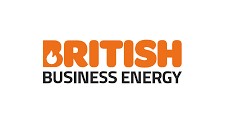
[ad_1]
Let’s face it, searching for a better energy tariff when you go out of contract with your gas or electricity provider can be a real faff. Who’s got time to compare energy tariffs when you’ve got better things to do running your small business?
Letting your business energy contract rolled over onto out-of-contract rates may be easier but it’s expensive. These unit rates are much dearer than nearly all tariffs. Getting a new fixed deal is still the best way to secure the cheapest rates at any time.
Which is where a business energy broker comes in.
What is a business energy broker?
Business energy brokers work with a panel of suppliers to provide a range of tariff types and prices to help customers find the right energy deal for them. Some brokers will work with just a few suppliers, whilst others will work with a wide range of providers.
Energy brokers facilitate over 60 per cent of all micro-business contracts, according to the Energy Consultants Association. There are over two million energy contracts available – and with the average renewing every two years, that’s over 650,000 (heavily weighted volume towards microbusiness/SME space) facilitated by brokers every year.
Your energy broker can also provide advice to your business on new meter installations and energy management. Experienced brokers will help you find an energy deal and tariff type that suits the needs of your business.
In the UK, there are more than 3,000 energy brokers to choose from.
Energy brokers dismiss £2bn lawsuit as ‘utter fantasy’ – Energy Consultants Association calls class action lawsuit by 5,000 small businesses ‘a PR attempt’ and that compensation claimed bears no relation to reality
Why use a business energy broker?
The most obvious benefit of switching with a business energy broker is the ability to save time and money when comparing energy prices.
What services do business energy brokers offer?
- Whole of market energy quotes
- Management of the switching process
- Contract renewal reminders
- Energy management advice
Why switching your energy supplier is important
The Federation of Small Businesses and the British Chambers of Commerce have sounded the alarm that more than one million of the UK’s 5.5m small businesses are locked into poor value energy deals that were struck when gas and electricity prices were at their peak at the end of last summer.
The good news is that, if you’re a microbusiness, you can immediately break your energy contract if you can find a better deal elsewhere.
UK energy price guide
| Business size (annual usage) | Electricity (p/kWh) | Annual electricity bill | Gas (p/kWh) | Annual gas bill | |
|---|---|---|---|---|---|
| Very small/micro (up to 5,000kWh) | 31p | £1,797.85 | 10.6p | £698.09 | |
| Small (5,000-15,00kWh) | 31.1p | £4,950.27 | 9.7p | £1,635.50 | |
| Medium (15,000-25,000kWh) | 31.3p | £8,255.58 | 9.5p | £2,589.73 | |
| Large (25,000-50,000kWh) | 3.1.3p | £16,178.46 | 9.4p | £4,972.83 | |
| Extra large (corporate) | 31p | £31,548.99 | 8.9p | £9,053.29 | |
| Data correct as of July 2023. Annual cost based on a 2-year contract and the maximum kWh usage within each business banding. |
Source: British Business Energy
What are the different tariffs?
A deemed tariff rate is given to a new business and can be expensive.
Fixed-rate energy tariff means that the price per kWh will not change for the duration of your energy contract, protecting you against any price increases.
A variable rate tariff on the other hand means the price per kWh fluctuates from month to month in line with wholesale market prices.
You can pay a green energy tariff if you are mindful about your eco credentials.
Can switching your energy provider save you money? – Business energy deals work differently to household energy offers. Les Roberts of energy broker Bionic sorts out the misconceptions
Things to consider with a business energy quote
When are your business hours? A restaurant or a bar primarily operating in the evenings or at the weekend, might be better off on an Economy 7 tariff for cheaper energy bills.
How many premises do you have? A multisite deal could offer better value for money if you operate across multiple sites.
How much does using a business energy broker cost?
Energy broker charges can vary from broker to broker. In most cases, a commission is included in the cost of energy usage. This should be built into any quote you receive from a business energy broker. The cost of commissions will generally vary between 1-2 per cent of the tariff you are quoted.
According to the Energy Consultants Association, a broker charges the typical UK business consuming 40,000 kWh a year over an average two-and-a-half-year energy contract £1,000 average commission per customer.
Hidden commission fees?
However, energy brokers have literally not had a good press recently.
Last month, energy regulator Ofgem has proposed forcing energy suppliers to be transparent on how much they pay energy brokers in commissions. Until now, energy brokers have only had to spell out to microbusinesses how much they are paid in commission by energy giants.
Small business organisations including British Independent Retailers’ Association (Bira) and the Federation of Independent Retailers (FIR) previously wrote to Ofgem, demanding it force gas and electricity suppliers to disclose how much they pay to small business energy brokers as middlemen brokering deals on their behalf.
The trade associations claimed that these stiff commissions have inflated energy bills, in what they call the “exploitation” of small businesses.
Lawyers at Harcus Parker and Leigh Day, which have launched class action lawsuits against energy suppliers, believe that in some cases broker commissions may have doubled small business energy bills. More than 5,000 businesses and organisations have joined their class action so far, with the average claim for each non-domestic customer currently standing at £5,000.
They have said that small businesses may have the right to claim back up to £2bn market-wide in “hidden” commissions.
What documents do I need to provide?
If you do decide to change your energy supplier, it would be helpful to have the following information:
- Your MPAN and MPRN numbers to locate your meter
- Your energy consumption and your current annual bill
- Your switching window and your contract end date
Once you have got this information to hand, the broker will be able to offer you a wide variety of energy tariff options through their supplier database. Next, you will be able to choose the tariff that meets your business needs and either switch online or over the phone.
After making your selection, you will then be asked to sign a letter of authority. This essentially enables your energy broker to act on your behalf. The broker will be able to manage the whole switching process by communicating with your both your new and previous supplier.
Best small business energy brokers and switching services

Bionic
Bionic says it has helped more than 200,000 small businesses since 2007.
Bionic is listed on all the major comparison websites, including Comparethemarket, Money Super Market and Confused.com. Energy suppliers it works with include E.ON, SSE, British Gas, EDF Energy, Drax and Total Energies.
Features:
- Deals with contract renewals through its Digital Renewal Service, which means you can renew without the need for a call
- Informs customers how much commission they take from suppliers
- One-stop-shop for small business owners, meaning customers looking for business energy deals can also arrange business phone and broadband, water, insurance and finance.

Love Energy Savings
Love Energy Savings says that it has helped more than 450,000 businesses save on their utility costs since 2007. If covers electricity, gas, water, telecoms and even business waste. Energy suppliers it works with include British Gas, EDF and Npower.
Between January and mid-August 2022, Love Energy Savings saved customers on average £1,809 for each switch, at a time when the average SME electricity bill is £2,400 a year.
Over the years, its customers have saved up to £1,401 on their energy, up to £450 on their water and halved the cost of waste collection.

Utility Bidder
Utility Bidder, highly commended as an energy broker at last year’s Energy Awards, describes itself as “the energy broker for small businesses”.
Utility Bidder has saved more than 75,000 businesses up to 45 per cent on their utility bills, overing gas, electricity and water.
It works with over 27 suppliers including Engie, Opus Energy, British Gas and it is this very wide panel that the broker says is key to being able to obtain a range of prices not always available to all brokers.
It also guarantees a £1,000 payment if it can’t beat your renewal quote from elsewhere.
“Being able to provide in-depth market insight and a wide comparison to help businesses make an informed choice and contract selection as easy as possible is what we aim to provide each time,” Utility Bidder tells Small Business.

Labrador
The mission of Labrador is to get all companies to transition to net zero cost effectively. Working with all the major energy suppliers in Britain, it says it has saved thousands of businesses £759,229 in total and nearly two thousand tonnes of carbon. Businesses are shown what they would pay if they opted for standard, carbon neutral and next zero.
Steve Armitage, chief commercial officer of Pearce Technologies, which owns Labrador, says: “We wanted to highlight the carbon intensity of different suppliers in the drive to net zero. We were keen for the customers to make the choice between low-carbon suppliers as well as high-carbon supplier.”
Perhaps mindful of some other energy brokers passing on “hidden” fees to customers, Labrador says it charges the same commission regardless of which supplier or tariff you choose. Unlike some brokers, whose commissions vary between energy suppliers, Labrador only takes a fixed commission equivalent to 0.7p per kWh consumption.
And because the whole process is done online, there are no pushy telesales calls.
Peak Payments scheme
Separately, businesses can reduce their energy bills by signing up to the National Grid Peak Payments scheme through Labrador. Businesses could be paid to reduce energy consumption when there is not enough electricity in the grid to match demand from November 2023 until March 2024 (tbc). Labrador notifies any customer in advance as to when the National Grid is requesting people to use less energy and how much they will be paid. It generally happens over a two to three-hour period in the late afternoon and early evening. To qualify, businesses need to have a half-hourly meter. Only half of businesses are equipped with smart meters, and that includes corporates.
There is no penalty if you don’t end up saving any energy; just bonus money if you do. You don’t need to send in meter reads – the whole thing is reconciled remotely via your electricity meter, without the need to do anything.

British Business Energy
British Business Energy says it has helped over 350,000 companies get better energy deals. This broker says that customers using its comparison engine save £1,401 on average annually. It works with major suppliers including British Gas, EDF, Scottishpower, Shell Energy and E.ON.
Further reading
Best UK business phone and broadband deals – how to choose – You need to understand your business and its internet needs before deciding on the best broadband and phone deal for you, says Nathan Hill-Haimes
[ad_2]
Source link

Post a Comment